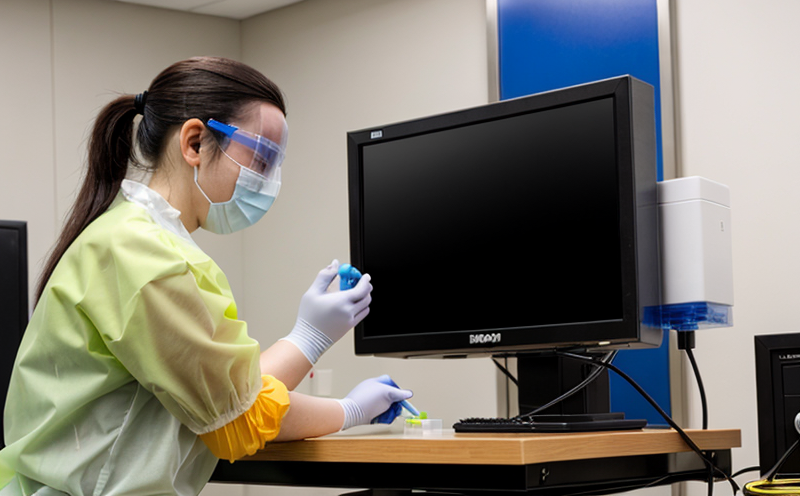Blood-Contact Device Compatibility Testing (In Vitro Models)
In vitro biocompatibility testing of blood-contact devices is a critical step in ensuring medical device safety and efficacy. This service aims to assess the potential for adverse biological reactions when a device comes into contact with human blood. The process involves carefully designed experiments that mimic real-world conditions, using cell cultures or isolated tissues as models.
The tests are conducted on materials like polyethylene terephthalate (PET), polycarbonate (PC), and stainless steel, which are commonly used in medical devices. These tests help identify any potential issues such as thrombosis induction, hemolysis, or other adverse effects. The testing methodologies must comply with relevant international standards to ensure consistency and reliability.
Biocompatibility testing is essential for ensuring that the device does not cause harm to the patient during use. This includes assessing the material's chemical stability, its compatibility with blood components, and whether it can induce an immune response in vivo. The goal is to minimize risks and ensure that devices meet stringent safety requirements.
Our laboratory uses state-of-the-art facilities and equipment to conduct these tests. We employ a variety of techniques including flow cytometry, ELISA (enzyme-linked immunosorbent assay), and scanning electron microscopy (SEM) to analyze the biological interactions between the device and blood components. These methods provide detailed insights into how the material behaves in a simulated physiological environment.
The testing process typically involves several stages. First, we select the appropriate cell lines or tissue samples that best represent the target patient population. Then, we expose these specimens to the device under controlled conditions for an extended period, closely monitoring any changes in cellular morphology or function. Finally, we analyze the results using advanced analytical techniques to determine whether there are any adverse effects.
The standards and guidelines governing this testing process are crucial for ensuring consistency and accuracy across different laboratories worldwide. Compliance with these regulations helps establish trust between regulatory bodies, manufacturers, and healthcare providers. Some of the key standards include ISO 10993-4, which specifies tests for biocompatibility evaluation; ISO 17652-1, focusing on hemocompatibility testing; and EN 863, dealing with the evaluation of materials used in medical devices.
Our team has extensive experience in conducting these types of tests. We understand the nuances involved in selecting the right samples, setting up controlled environments, and interpreting complex data sets. By leveraging our expertise and cutting-edge technology, we can provide you with reliable results that meet or exceed your expectations.
Applied Standards
| Standard Reference | Description |
|---|---|
| ISO 10993-4 | Biocompatibility evaluation of medical devices. |
| ISO 17652-1 | Hemocompatibility testing methods for medical devices in contact with blood. |
| EN 863 | Evaluation of materials used in medical devices. |
Eurolab Advantages
At Eurolab, we pride ourselves on offering top-tier services that go beyond mere compliance. Our team of highly qualified professionals brings years of experience and expertise to every project, ensuring accurate and reliable results. With a robust quality management system in place, we maintain high standards throughout the entire testing process.
We invest heavily in maintaining our state-of-the-art facilities and equipment, allowing us to provide precise and repeatable test conditions. Our commitment to accuracy is further enhanced by rigorous internal audits conducted regularly. This ensures that all aspects of the testing process are consistently met or exceeded.
Moreover, we offer flexible service packages tailored to meet your specific needs. Whether you require a single test or an ongoing support program, our dedicated team will work closely with you to understand your requirements and deliver personalized solutions. Our comprehensive approach ensures that no detail is overlooked, providing peace of mind for both clients and regulatory authorities.
Competitive Advantage and Market Impact
- Comprehensive understanding of biocompatibility testing requirements
- Access to advanced analytical techniques not available elsewhere
- Experienced staff with extensive industry knowledge
- State-of-the-art laboratory facilities and equipment
- Rigorous quality control measures ensuring consistent results
- Flexible service packages catering to diverse client needs





